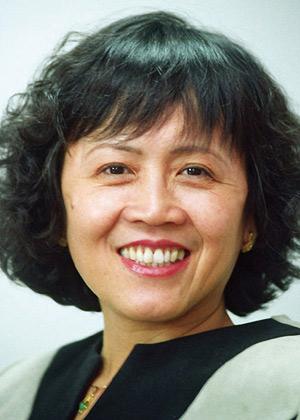 Hu Shuli
Hu ShuliHu Shuli, the founder and editor of Caijing, China's most influential and profitable magazine, resigned yesterday, along with several top editors, after friction with the publisher, inside sources revealed.
Hu's departure followed the mass resignation of nearly 70 employees from the magazine's business department, including its general manager Daphne Wu Chuanhui, in mid-October.
An inside source told China Daily on condition of anonymity that the 56-year-old tendered her resignation yesterday to the Stock Exchange Executive Council (SEEC), Caijing's owner.
Hu has accepted an invitation from Guangzhou-based Sun Yat-sen University to businessbe the head of its School of Communication and Design, the source said.
Caijing spokeswoman Zhang Lihui last night confirmed on her microblog at sina.com that Hu's resignation had been accepted.
Neither the SEEC Media Group nor Hu could be reached for comment yesterday.
Associated Press reported that insiders expect Hu will re-launch a magazine under the name "Caixin", or Caijing News Weekly.
Hu has already taken part in more than a year of talks with Hong Kong media tycoon Richard Li about starting an Internet-based news outlet, although the project has not yet been launched.
In addition to Hu, several senior editors also walked from the biweekly magazine.
Sources said two deputy editors-in-chief - Dai Xiaojing and Yang Daming - and managing editor Wang Shuo, tendered their resignations.
Yang Lang has been appointed deputy editor-in-chief, sources said.
The latest resignations follow months of uncertainty about the future of the magazine, which is widely considered to be China's most important news publication and which has earned respect because of its independent reports.
Media speculation had been rife about whether or not Hu's resignation was imminent.
The SEEC is understood to have been trying for months to reel in the magazine's editorial independence.
An inside source earlier told China Daily the SEEC wanted more control and the ability to censor financial stories, especially cover stories and investigative reports.
Hu, a veteran journalist , made sure the Beijing-based bi-weekly was vocal on issues relating to official scandals, corporate fraud and public health emergencies ever since the publication was founded in 1998. Caijing boasts a circulation of 225,000.





